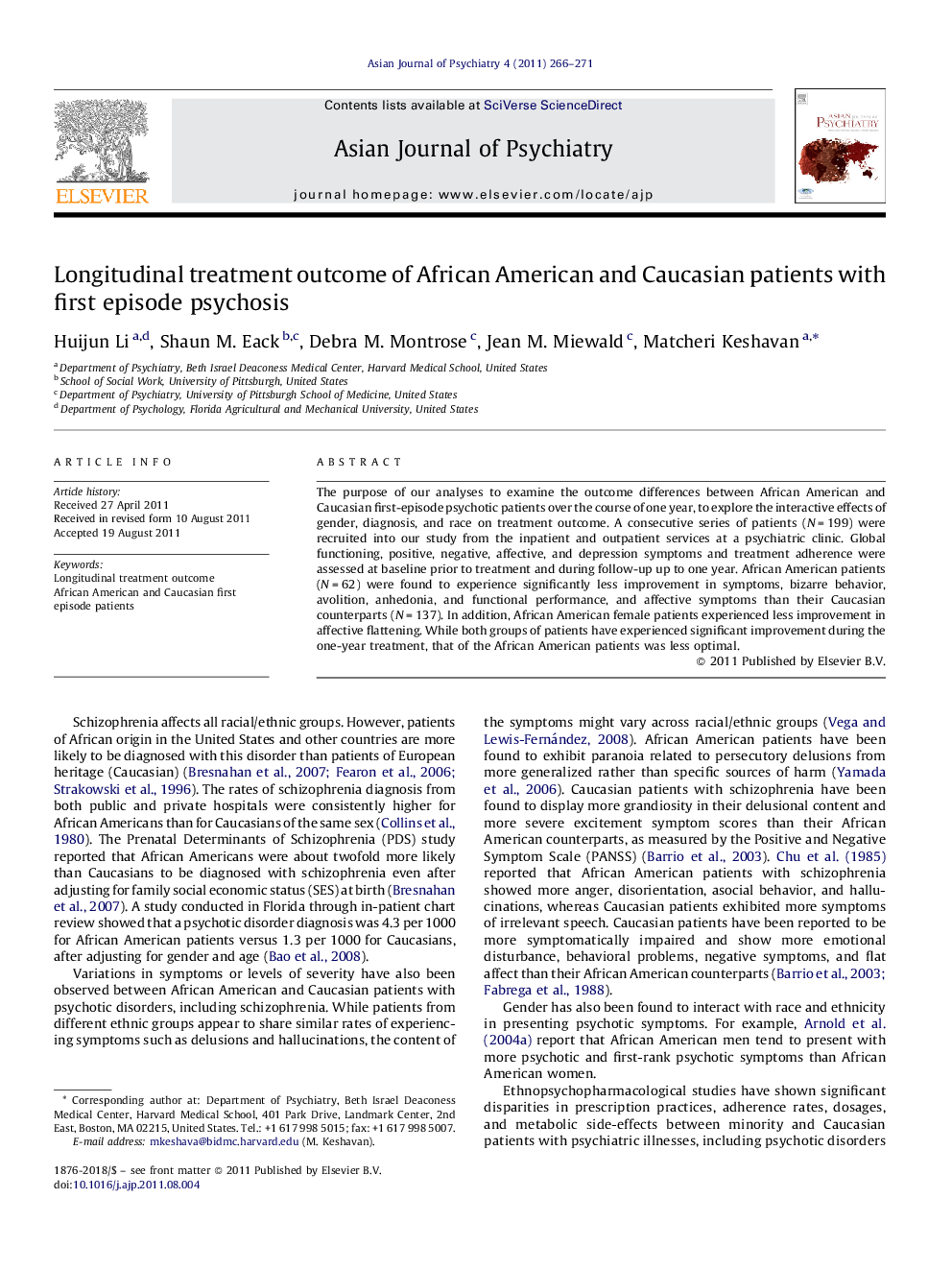| Article ID | Journal | Published Year | Pages | File Type |
|---|---|---|---|---|
| 315557 | Asian Journal of Psychiatry | 2011 | 6 Pages |
The purpose of our analyses to examine the outcome differences between African American and Caucasian first-episode psychotic patients over the course of one year, to explore the interactive effects of gender, diagnosis, and race on treatment outcome. A consecutive series of patients (N = 199) were recruited into our study from the inpatient and outpatient services at a psychiatric clinic. Global functioning, positive, negative, affective, and depression symptoms and treatment adherence were assessed at baseline prior to treatment and during follow-up up to one year. African American patients (N = 62) were found to experience significantly less improvement in symptoms, bizarre behavior, avolition, anhedonia, and functional performance, and affective symptoms than their Caucasian counterparts (N = 137). In addition, African American female patients experienced less improvement in affective flattening. While both groups of patients have experienced significant improvement during the one-year treatment, that of the African American patients was less optimal.
